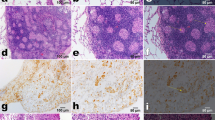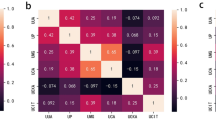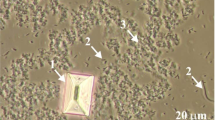Abstract
In the course of an investigation1 of the pulmonary responses of animals exposed to high concentrations of oxygen at atmospheric pressure (OAP) and to high concentrations of oxygen at atmospheric pressure to which 9–13 per cent carbon dioxide was added (OAP + CO2), discrete, amorphous, non-crystalline masses were found in the urinary bladder at autopsy.
This is a preview of subscription content, access via your institution
Access options
Subscribe to this journal
Receive 51 print issues and online access
$199.00 per year
only $3.90 per issue
Buy this article
- Purchase on Springer Link
- Instant access to full article PDF
Prices may be subject to local taxes which are calculated during checkout
Similar content being viewed by others
References
DeClement, F. A., and Smith, C. W., Fed. Proc., 21, 444 (1962).
Smith, C. W., Lehan, P. H., and Monks, J. J., J. App. Physiol., 18, 849 (1963).
McGaughey, C., Nature, 192, 1267 (1961).
Author information
Authors and Affiliations
Rights and permissions
About this article
Cite this article
SMITH, C., DECLEMENT, F. Occurrence of Urinary Calculi in Rats exposed to High Concentrations of Oxygen with Added Carbon Dioxide. Nature 203, 85–86 (1964). https://doi.org/10.1038/203085a0
Published:
Issue Date:
DOI: https://doi.org/10.1038/203085a0
Comments
By submitting a comment you agree to abide by our Terms and Community Guidelines. If you find something abusive or that does not comply with our terms or guidelines please flag it as inappropriate.



